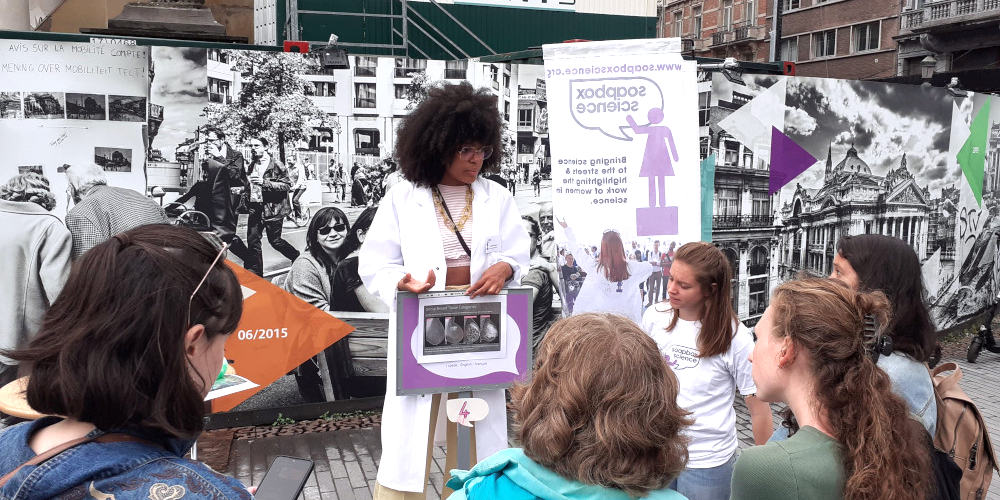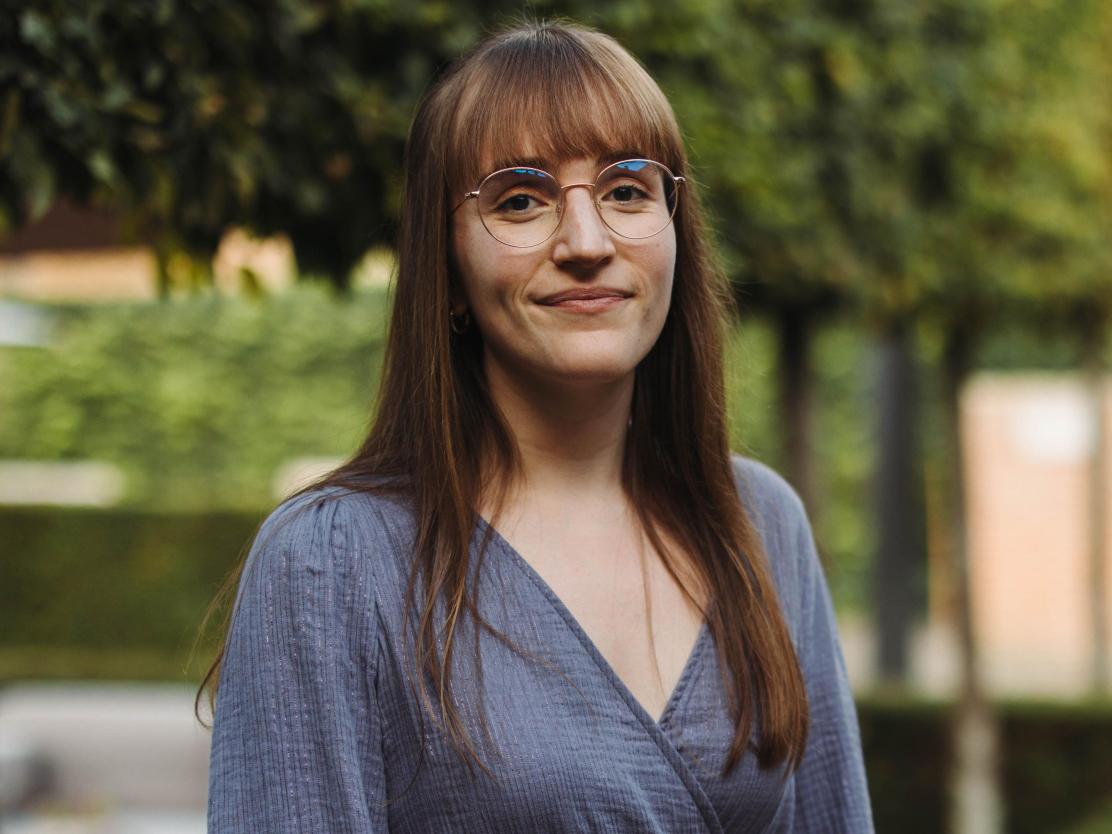
It takes a certain boldness to stand on a soapbox and talk about what drives you as a scientist. On 28 June, from 2 to 5pm, four researchers from the Vrije Universiteit Brussel (VUB) will be doing just that at Soapbox Science Brussels. Catch them at the Europakruispunt, the square just outside the main entrance to Brussels Central Station. Florine and Else share what gave them the courage to step up and speak out.

A Cosmic Sherlock Holmes
Else Magnus is a PhD candidate in high-energy physics at the VUB. She investigates traces of cosmic explosions and elusive particles called neutrinos. On 28 June, she’ll take to the soapbox in Brussels with a talk titled: “Sherlock Holmes in Space: Solving the Cosmic Puzzle with Multi-Messenger Astronomy.”
Why are you taking part?
“I love sharing my passion for astronomy, in the hope it sparks curiosity in others. People often think, ‘Wow, astronomy, that’s cool!’—but they don’t always understand what studying the universe actually involves. That’s why I want to explain what we’re trying to discover, what questions we’re asking, and which forces of nature we’re trying to test.”
What’s your research about?
“I study a special type of exploding star—gamma-ray bursts. These occur when stars collide or reach the end of their life cycle. I examine the radiation and particles they emit, to better understand the processes behind star formation. In my talk, I’ll explore how combining different signals from the universe can help us make new discoveries.”
How did you get into this research?
“It evolved quite naturally from my master’s thesis, where I laid the groundwork for studying cosmic radiation. I’ll soon begin investigating the cosmic particles emitted during gamma-ray bursts.”
What do you hope to achieve in your career?
“I hope to discover something new—or at least leave behind research that others can build on. I also want to keep doing science communication; I really enjoy that.”
Isn’t it nerve-racking to stand on a soapbox?
“Definitely! There’s no fixed audience—people come and go. But I’m looking forward to the challenge. It’s something completely different.”
When Kidneys Fail
Florine Janssens is a researcher at VUB–UZ Brussels, trained as a doctor and now working on a PhD within the NIER research group, which, as the name suggests, focuses on kidney disease. On 28 June, she’ll be speaking at Soapbox Science Brussels. Her talk is titled: “When Kidneys Fail: How Dialysis Challenges Our Immune System.”

Why are you taking part?
“Many people don’t realise just how much our kidneys do for our health. Dialysis sounds like something distant and unfamiliar. On our ward, we treat patients with haemodialysis—an intensive therapy where they’re connected to a machine that filters their blood for four hours, three times a week. The machine replaces the kidneys’ function when they fail. But despite this treatment, half of these patients die within five years—mainly from cardiovascular disease. That’s a worse prognosis than many cancers. Yet there’s little awareness, both in research and among the public. With Soapbox Science, I want to raise awareness of the urgent need for more research into haemodialysis.”
What’s your research about?
“During dialysis, the blood comes into contact with foreign materials, which activates the immune system. Immune cells recognise the machine as an intruder, attach to it, and become activated. I study these cells—both in blood samples and directly on the machine—and I’ve developed methods to measure their level of activation. I’m now exploring whether different forms of dialysis influence this immune response. The more activated the immune system, the greater the risk of cardiovascular complications. Ideally, this research will help us tailor treatments more effectively and improve patient survival.”
How did the research idea come about?
“My current PhD supervisor was on the panel for my medical school dissertation. She had previously worked on dialysis treatment optimisation, though not specifically on immune cells. That’s how we started talking. The extremely poor survival rates of our patients motivated us to investigate what’s going wrong—and how we can fix it.”
What do you hope to achieve in your career?
“I’m training as a specialist in internal medicine while completing my PhD. My aim is to successfully finish both paths and then continue combining research with clinical practice. And who knows—maybe one day the research I’m doing now will help shape the dialysis prescriptions we write.”
Isn’t it scary to speak on a soapbox?
“A bit, yes! It’s very different from explaining things to a patient during a consultation. But I see it as a fun challenge and a great chance to share this work with a wider audience. I’m especially curious to hear the questions people ask—it might even get me thinking in new directions.”
Who Else from the VUB is Taking Part?
Hiva Houshyar – Can Technology Make Our Inaccessible Cities Better? A View from a Wheelchair
Hiva Houshyar explores how technology can make urban environments more accessible for wheelchair users. Using smart sensors and a strong background in rehabilitation and engineering, she maps out the physical and social barriers embedded in our cities.
Vendula Smolíková – Tracing Water Pollution Through Time and Space
Vendula Smolíková tracks pollutants in water—from mining runoff to micro-contaminants. Combining lab analysis with global fieldwork, she aims to understand how toxins spread and how we can improve water quality.
"This is a machine translation. We apologise for any inaccuracies."